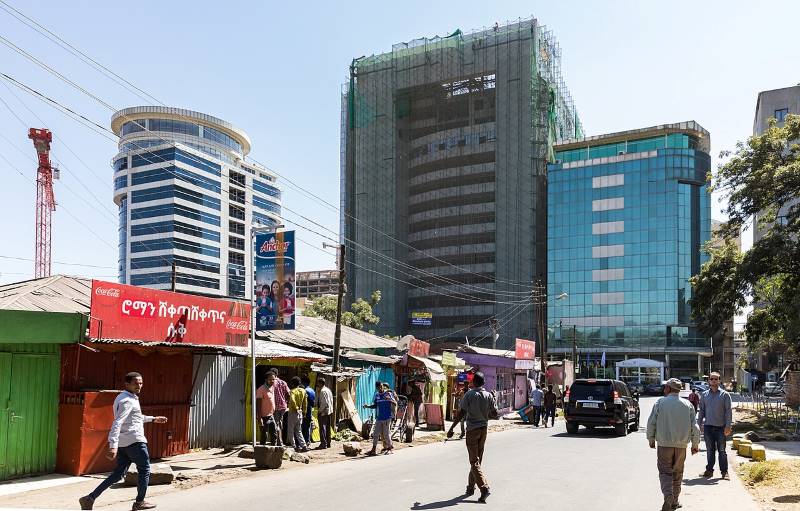When you think of South Africa, you’re far more likely to think of the country’s stunning natural ecosystems than of its startup ecosystem. Despite the country’s still-developing economy, there are a plethora of excellent startups to watch in South Africa. The nation now boasts a slew of startups, despite its population of 58.56 million people. This is indicative of the country’s developing entrepreneurial spirit. According to Techcrunch, African companies raised a meager $400 million in 2015, compared to the continent’s $2 billion in 2019. Naturally, the nation has a long way to go before reaching parity with bigger ecosystems, but they are making progress.
What are we waiting for? Let us plunge into the ecosystem and honor the five South African startups.
Adumo
Adumo is a South African fintech firm situated in Branston, South Africa. The company is a supplier of independent payment services and a comprehensive payment platform for companies of all sizes. Despite the company’s brief existence of two years, it has seen rapid development and seems to be a promising South African business. According to Business Tech Adumo announced the addition of $15 million in fresh financing from IFC, a World Bank Group member, and the IFC Financial Institutions Growth Fund, to extend access to electronic payment solutions. The IFC’s investment will help Adumo make digital payment systems more inexpensive and accessible to Africa’s small companies, the majority of which depend on cash transactions. Micro, small, and medium-sized firms employ over 50% of the workforce and generate around 34% of GDP in South Africa, yet many lack access to critical services that would help their company thrive. IFC’s investment in Adumo enables small businesses to access the digital economy, which they see as more significant.

Figure 1 – Logo of Adumo. Source- Google.
Kusini Water
Kusini was formed in 2017 by Murendeni Mafumo, a Limpopo native who had an early interest in science, namely chemistry. He studied chemistry and spent time in the cities of Johannesburg and Cape Town working on water and sanitation. He became conscious of the divide between urban and rural people at this time when the former take potable water for granted while the latter spend hours each day getting and hauling it home. The idea for a basic water filtration device occurred to him in 2014, when he was a Mandela Washington Fellow at Yale University. Kusini Water designs and manufactures water purification and distribution systems using locally available materials such as macadamia nut shells and nanotechnology in order to provide safe drinking water to areas most impacted by a lack of access to safe drinking water. Additionally, the firm employs indigenous youngsters to manage its water projects. According to Engineering News from Creamer Media, The Vumela Fund is investing an unknown sum in this cleantech firm. Kusini Water intends to develop its activities and capabilities in order to provide safe, clean drinking water to people living in rural, peri-urban, and informal communities across Africa. This enables them to have a beneficial social effect by providing safe drinking water and implementing water conservation measures in rural and urban areas.

Figure 2 – The Brand image of Kusini water. Source – Twitter.
FoondaMate
UNICEF reported in a March 2021 news release that the temporary shutdown of educational facilities impacted approximately 168 million children globally who remained at home while nations sought to flatten the curve. As a result, schools have shifted to online learning, but South Africa now has a 62 percent Internet penetration rate and an 89 percent WhatsApp use rate, according to Talkwalker. Dacod Magagula (CEO) and Tao Boyle (COO) built FoondaMate, a WhatsApp API, with these data in mind. The Chatbot provides prior practice exam papers and memos to matric students. Additionally, it solves high school mathematics issues such as linear equations and simultaneous equations and gives text descriptions of words and Wikipedia articles in less than a minute. The necessity for the chatbot was increased further by the fact that many schools lack printers or are unable to fund the expense of publishing study materials for students. Few schools have sufficient textbooks to provide one to each pupil.

Figure 3 – Website image of FoondaMate. Source- Google
Livestock Wealth
In 2015, this startup introduced South Africans to the concept of “crowdfarming.” The firm, founded by Ntuthuko Shezi, a KwaZulu-Natal-born electro-mechanical engineer, links investors with farmers in need of capital via the use of cattle as collateral. Investors may invest in cows and agricultural food items through the web and mobile application, rather than via unit trusts, stocks, or exchange-traded funds. According to the United Nations Food and Agriculture Organization, the SADC is endowed with livestock resources, with around 74.9 million cattle.
Cow farming offers a stable source of income for farmers who are responsible for the cattle’s care, while also enabling others without access to land to own cattle and produce nutritious, hormone-free meat. The community farming platform also owns property and increased its services in 2019 to include agricultural assets such as sugarcane plants, macadamia trees, and maize plants. Livestock Wealth currently has 6800 hectares under management, 650 investors, and thousands of cows, according to Social Fintech. The creator has received funding from organizations such as Bank of America Merrill Lynch in the amount of R500,000 and the Gauteng provincial government’s Innovation Hub in the amount of R400,000.

Figure 4 – Logo of Livestock Wealth. Source – Google
Ambani Africa
Mukundi Lambani launched Ambani Africa, a learning platform that enables Africa’s foundation phase learners to study their home language. Ambani operates in Augmented Reality (AR), where users may learn up to six African languages via games, shows, and music. Additionally, you may schedule a tutoring session to study isiZulu, isiXhosa, Setswana, Sepedi, Tshivenda, or English. People as far away as Australia were utilizing the app to connect their children with their faraway homelands and mother languages. Others who had left South Africa and grown to adulthood in distant lands were re-establishing their ties to Africa via Ambani Africa. According to iol, Ambani Africa App won the MTN Business App of the Year award, which comes with an extraordinary R1 million in prize money. Additionally, the Ambani Africa app was ranked first in the categories of Best Gaming Solution, Best Educational Solution, and Best South African Solution.

Figure 5 – The Ambani Africa Logo. Source – LinkedIn

Anand Subramanian is a freelance photographer and content writer based out of Tamil Nadu, India. Having a background in Engineering always made him curious about life on the other side of the spectrum. He leapt forward towards the Photography life and never looked back. Specializing in Documentary and Portrait photography gave him an up-close and personal view into the complexities of human beings and those experiences helped him branch out from visual to words. Today he is mentoring passionate photographers and writing about the different dimensions of the art world.





